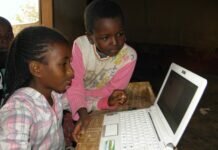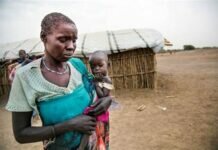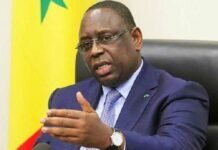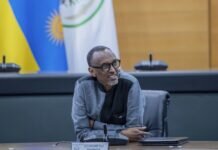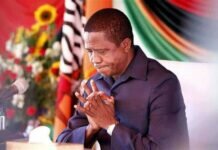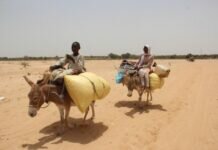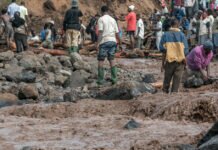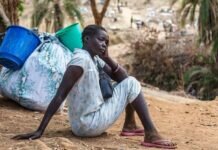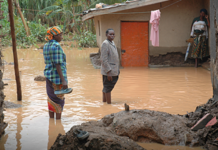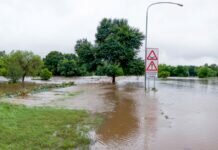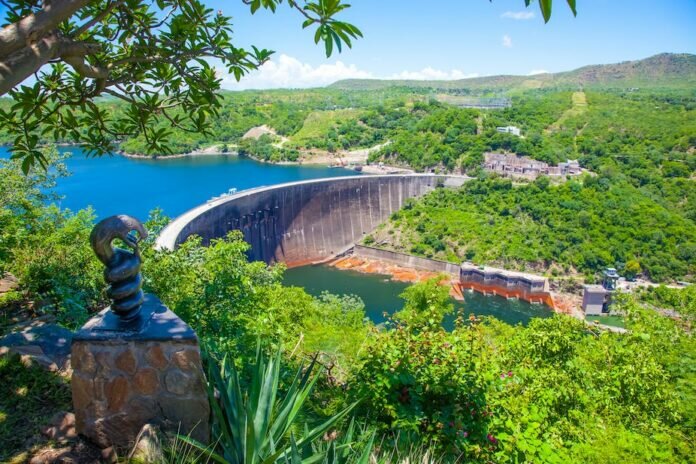On the sidelines of the Summit for a New Global Financing Pact in Paris, African leaders, investors and development partners, including the African Development Bank Group , have highlighted their steadfast support for the Alliance for Green Infrastructure in Africa as it advances toward a first close of $500 million for green infrastructure projects in Africa.
African Development Bank President Akinwumi A. Adesina led a roundtable discussion about the Alliance, an initiative of the African Union Commission, the African Development Bank, and Africa50 with other partners.
“The Alliance will mobilize $100 million in grants for project preparation, $400 million in blended financing through grants, concessional resources, and commercial investments for project development,” Adesina said, explaining how the initiative will work.
During the event, Amadou Hott, African Development Bank Special Envoy for the Alliance, announced that Mark Gallogly of philanthropic firm Three Cairns Group had provided a $5 million grant to the Alliance.
The roundtable offered African presidents, investors and partners the opportunity to discuss the initiative and other innovative climate finance mechanisms against a backdrop of high-level discussions to overhaul the global financial architecture to make it fairer for developing countries. These countries are also looking to gain access to financing to adapt swiftly to accelerating climate change as their budgets are constrained.
Kenyan President William Ruto said Africa’s already low share of global energy investments had fallen sharply over the last five years. Africa’s cost of borrowing, which is eight times higher than other regions, was another challenge. “Let us have a different conversation,” Ruto said. Let us not have a conversation about us versus them, north versus south. Let us have a conversation of win-win.”
Comoros President Azali Assoumani, current chair of the African Union, said his government was putting the right conditions in place to attract investment in the island nation’s renewable sector.
Several African leaders cited the use of wood fuel and clean cooking as a particular challenge. In Madagascar, like in many African countries, we still use coal, and each household must destroy one hectare to cook food, so we need financing for alternate energy sources,” said Andriy Rajoelina, the country’s president.
Alexia LaTortue, United States Assistant Secretary of the Treasury for international markets, lauded the Alliance, saying it could reverse the recent decline in private investment
President Nana Akufo-Addo of Ghana said the Alliance must be responsive. “The request that I would make of the Alliance for Green Infrastructure is that when projects are sent to you for your support that these projects are dealt with expeditiously,” he said.
Mafalda Duarte, Executive Director of the Green Climate Fund, expressed strong support for concessional finance as a tool for driving infrastructure development. “African leaders have made important decisions that are counterintuitive to many. Kenya has been investing in geothermal power development for some time and concessional financing has played quite a critical role in de-risking those investments,” she said. She cited Morocco’s investments in solar energy as another successful use of concessional financing.
Alexia LaTortue, United States Assistant Secretary of the Treasury for international markets, lauded the Alliance, saying it could reverse the recent decline in private investment in Africa.
“I have high expectations that AGIA can help play a coordination role across different project preparation facilities on the continent so that the financial and human resources that exist can be leveraged more efficiently and effectively,” LaTortue said.
Alain Ebobissé, president of Africa50; Jean-Michel Sama Lukonde Kyenge, Prime Minister of the Democratic Republic of the Congo; Patrick Achi, Prime Minister of Cote d’Ivoire; President of Mauritania Mohamed Ould Ghazouani; Mark Malloch Brown, president of Open Society Foundations; and philanthropist Galoogly also spoke.
In closing, Adesina said the discussions had underscored AGIA’s potential to help Africa build infrastructure in a new way, “building it green and greening already brown infrastructure to make them quite resilient.” He said AGIA would achieve this quickly and in a market-driven way.
He said the event had demonstrated the robust political and financing support the initiative has secured. “We need to get this now to a closure, a first close, that’s what the future looks like, and that future will land us at COP28, or even ahead of COP28, I hope,” Adesina said.
The June 22-23 Summit for a New Global Financing Pact has rallied leaders of government, financial institutions, corporations and NGOs to lay the foundation for a more responsive, fairer and more inclusive financial system that addresses inequality, debt overhangs, climate change and protecting biodiversity.


